Trump is bound to continue and escalate some of the strategies from the 2020 U.S.-China new Cold War in his new term, waging a political war against the CCP. The image shows a file photo of Trump. (Samira Bouaou/Epoch Times)
[People News] On January 20, Trump's (Trump) inauguration ceremony, the question of who the CCP will send to attend seems to have become a major challenge. Trump's invitation to Xi Jinping broke with tradition and caused a headache in Zhongnanhai. The possibility of Xi Jinping personally attending is very small. The challenge is not just about which CCP official might represent China in Washington; the real difficulty lies in how the CCP representative should formally express their stance to the Trump team face-to-face. Furthermore, whether the CCP representative will still refuse to sit alongside the Taiwanese representative is another challenge.
Will the CCP Break Its Own "Red Line"?
Trump is not the first U.S. president to present the CCP with a dilemma at an inauguration. Four years ago, during Biden’s inauguration, Taiwan's representative to the U.S., Xiao Meiqin, was invited to attend, breaking the practice since 1979, when the U.S. severed diplomatic ties with Taiwan. Before that, Taiwanese representatives could not attend U.S. presidential inaugurations as "diplomatic envoys" but would typically gain entry through a friend in the U.S. Congress.
On January 20, 2021, Biden’s inauguration ceremony had to follow strict pandemic-related measures, limiting the number of people and maintaining large spacing. However, the ceremony’s planning committee sent a formal invitation to the Taiwanese representative office in the U.S. Biden’s team thus sent an early "competitive" signal to the CCP, presenting it with a moderate challenge.
It is reported that at the time, the CCP’s ambassador to the U.S., Cui Tiankai, did not attend Biden’s inauguration, likely due to the Taiwanese representative's invitation. Biden's team may have ignored the CCP's protests, and the CCP ultimately had to let Cui Tiankai stay out of sight but did not make a public statement.
Taiwan’s representative Xiao Meiqin posted photos from the ceremony, while Cui Tiankai only congratulated Biden via social media. The CCP believed that Biden was weak and chose to boycott the event in defiance, but this disregard for diplomatic etiquette also created a gap between Chinese and American diplomatic channels.
In June of that year, Cui Tiankai was dismissed. Qin Gang arrived in the U.S. in July to take over, but the official announcement of his appointment did not come until August. After Qin Gang assumed his post, communication with the U.S. State Department remained difficult, and he could only schedule public activities to fill his calendar. The Biden team subsequently imposed a series of sanctions on the CCP, and it is unclear if the CCP regrets missing Biden’s inauguration.
Now that Trump is returning to office, Taiwan’s representative has again been invited to the inauguration, with an 8-member delegation from Taiwan’s Legislative Yuan confirmed. The CCP faces the same dilemma again. If the current Chinese ambassador to the U.S., Xie Feng, attends, he will be seated alongside the Taiwanese representative, thus breaking the CCP’s self-imposed "red line" on the Taiwan issue.
Currently, the CCP representative cannot afford to miss Trump’s inauguration and may even send a higher-level official, as the issue of face has become less of a concern.
The Major Dilemma for the CCP in Expressing Its Stance to Trump
Trump’s invitation to Xi Jinping to attend the inauguration ceremony is, in fact, sending a signal to Zhongnanhai: the CCP's diplomatic indifference to the United States will no longer be acceptable starting in 2025. The CCP needs to clarify its position; if it still refuses to concede, Trump’s hard-line approach is likely to follow.
On the first day of his presidency, Trump plans to take a "first show respect, then act" approach. If the CCP does not want Trump to take action, it must make specific commitments. This should be the most significant subtext of Trump’s invitation to Xi Jinping. If the CCP wants to negotiate, it needs to send someone who actually has decision-making power to engage. Trump is not willing to accept the CCP’s past practices of using lower-level officials for communication, delay tactics, or leaving room for negotiation.
Reports indicate that Trump’s team has explicitly pointed to the need to communicate directly with Cai Qi, rather than through the CCP’s Ministry of Foreign Affairs as an intermediary. The White House wants direct contact with Zhongnanhai. There are rumors that the CCP might send Han Zheng to represent Xi Jinping at Trump’s inauguration, while Trump’s team demands Cai Qi attend. These actions seem to reflect Trump’s unique style—facing Trump, the CCP no longer has the option to play games or procrastinate. If the CCP still refuses to take a clear stance, Trump will force them to do so.
At the end of November 2024, Trump posted, "I have had many talks with China (the CCP) about the massive shipment of drugs, especially fentanyl, to the U.S., but nothing has been done. Chinese (CCP) representatives told me they would impose the highest punishment, the death penalty, on any drug trafficker caught doing this. Unfortunately, they (the CCP) have never carried it out, and drugs continue to flood into our country through Mexico at unprecedented levels. We will impose an additional 10% tariff on all products coming from China, higher than any other additional tariffs."
On December 8, Trump revealed that he had communicated with Xi Jinping, and the CCP had promised that anyone shipping drugs to the U.S. would be sentenced to death. Trump also stated that if tariffs were imposed on them, the CCP would not dare to play games with the U.S. Now, both sides are playing many games.
Of course, the CCP still wants to continue playing these games, but Trump can impose tariffs at any time, making the CCP reluctant to engage in such games. On the first day of his presidency, Trump wants a high-level CCP representative to come to Washington to make a clear statement. Zhongnanhai should understand this: the person chosen to attend the ceremony is not only a matter of courtesy and face but also who will speak on behalf of the CCP and how they will express their stance.
If the CCP representative sticks to the old routine, saying that China and the U.S. should "move towards each other" or "return to the right track," or even blame the U.S. for its "misunderstanding," and redraw the "red line" on the Taiwan issue, they should be aware of the potential consequences.
If the CCP is forced to soften its stance towards Trump, it will need to make some concrete commitments, such as stopping military harassment around Taiwan, halting cyberattacks and infiltration against the U.S., and ceasing the supply of military goods to Russia. Trump will not accept empty words. These should be the most basic commitments the CCP needs to make, and there may be more to follow, such as resolving unfair trade practices and halting technology theft.
The CCP certainly does not want to do this, but it is also afraid that Trump’s punitive actions could come swiftly. Even before Trump’s inauguration, the CCP is already anxious, and the issue is far more complicated than just deciding who will attend the ceremony. Who the CCP sends to the ceremony indicates who might be sent to negotiate with Trump’s team, which is closely tied to the current internal struggles within the CCP.
Who Goes to Washington and the Role of CCP Internal Struggles
Zhongnanhai might also send Wang Yi to attend Trump’s inauguration. Foreign ministers from Japan, Australia, and India have already confirmed their attendance in Washington, and a Quadrilateral Foreign Ministers meeting may be arranged, quickly solidifying alliances with Indo-Pacific countries against the CCP on the first day of Trump’s new term.
If Wang Yi goes to Washington, he would likely seek a meeting with the new U.S. Secretary of State, Marco Rubio. On January 20, Rubio is expected to prioritize meetings with foreign ministers from allied countries, and even if Wang Yi manages to meet with Rubio, the latter will probably have little patience for Wang Yi’s formalities and talking points.
If Zhongnanhai instructs Wang Yi to go to Washington and soften the stance, making certain commitments, then who should Wang Yi take orders from?
On December 17, 2024, when summarizing China’s foreign policy work for the year, Foreign Minister Wang Yi praised Xi Jinping for his "personal involvement" in foreign affairs, outwardly flattering the CCP leader but essentially shifting the blame for the diplomatic failures of the year onto Xi Jinping. The loss of Xi’s authority, especially in U.S.-China diplomacy, is likely one of the main reasons for the CCP’s diplomatic setbacks. Whether Xi Jinping can still act as the central figure in foreign policy decisions remains uncertain.
Over the past year, Wang Yi’s foreign visits have significantly decreased, likely due to internal power struggles within Zhongnanhai. If Xi Jinping has lost his final decision-making authority, it would be difficult for the Standing Committee or Politburo to reach decisions quickly, leaving Wang Yi without clear instructions and forced to maintain a low profile.
The situation seems to remain the same: if Wang Yi were to go to Washington, what instructions should he follow? If unexpected situations arise, who should he consult for guidance? These are unclear and difficult challenges. At this moment, in Zhongnanhai, anyone daring to suggest softening or conceding to Trump could be attacked within the party and put at a disadvantage in internal struggles; conversely, anyone proposing a tough stance against Trump would also face criticism.
The CCP could send Han Zheng to Washington while leaving Wang Yi in Beijing, which would be purely ceremonial. Han Zheng is no longer a member of the Politburo, so he would likely not have the authority to negotiate with Trump’s team. Although his rank is higher than Wang Yi’s, what Trump truly wants is not ceremony but real commitments from the CCP.
If Trump believes the CCP is still trying to play games, he will likely take swift and high-profile action. Of course, Trump’s team may also be testing how serious the internal turmoil in Zhongnanhai is.
Trump’s inauguration presents a major dilemma for the CCP, not only due to Trump’s unique approach but also because the CCP cannot extricate itself from its internal and external predicaments. Internal power struggles are causing the CCP to teeter on the brink.
(Dajiyuan)

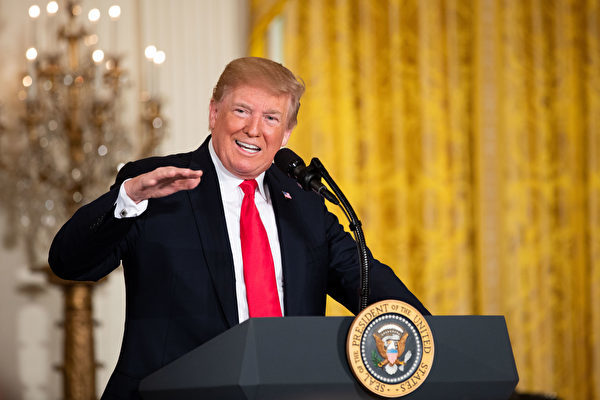
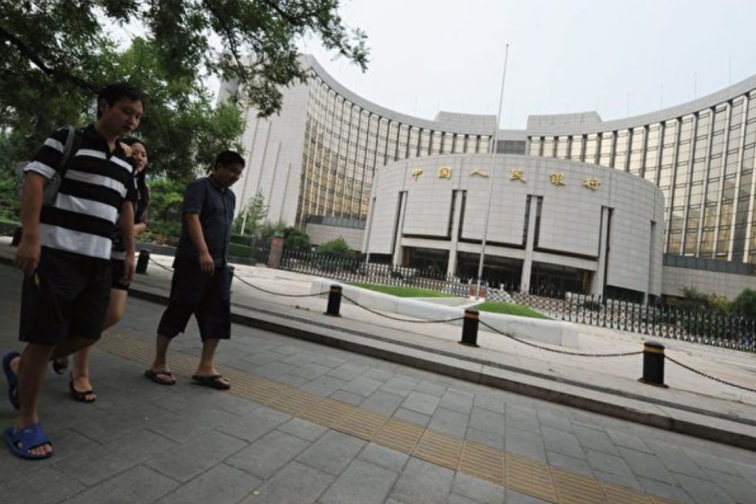
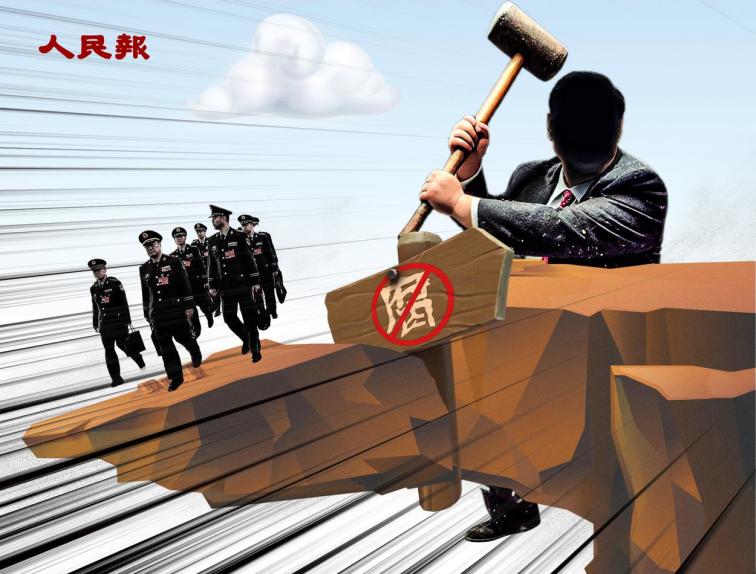
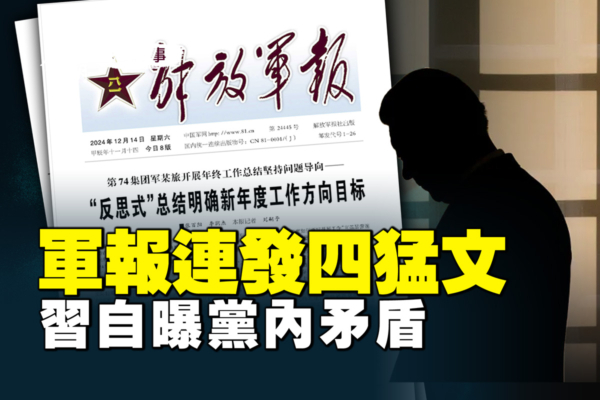

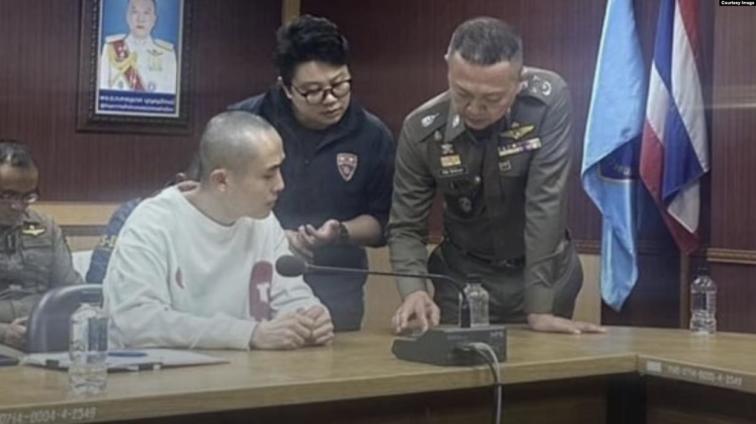




News magazine bootstrap themes!
I like this themes, fast loading and look profesional
Thank you Carlos!
You're welcome!
Please support me with give positive rating!
Yes Sure!